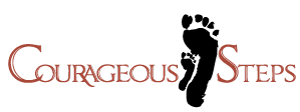Master of Arts in Organizational Leadership
Class of 2015
At the heart of my graduate journey in Organizational Leadership lies a guiding principle that transcends theory or technique: cura personalis—care for the whole person. This ethos invited me not only to study leadership, but to become deeply attuned to the sacred complexity of human experience. Across each course, I was called to integrate mind and heart, action and reflection, systems and soul.
Whether designing NICU-based interventions, exploring resilience through existential hardship, or crafting spaces of belonging for vulnerable families, I was continually reminded that leadership is not merely about outcomes—it is about presence. These courses, each in their own way, became spiritual and intellectual waypoints, shaping a practice of leadership that honors dignity, listens deeply, and holds space for transformation. What follows is not just a list of academic accomplishments, but a narrative of becoming—an unfolding rooted in the belief that true leadership begins with compassionate attention to the whole person, including oneself.
ORGL-500: Organizational Leadership
Demonstrated expertise in organizational leadership by applying integrative leadership models, analyzing workplace dysfunction and bias, and fostering inclusive, future-oriented strategies through collaborative dialogue and critical thinking. LINK
ORGL-501: Methods of Research
Designed and proposed a qualitative phenomenological study on servant-leadership in NICU settings, demonstrating advanced skills in research design, ethical inquiry, APA scholarly writing, and synthesis of peer-reviewed literature to explore leadership impact on neonatal care outcomes. LINK
ORGL-502: Leadership and Imagination
Explored the intersection of imagination and leadership by analyzing cultural artifacts—architecture, film, and philosophy—to apply creative process dynamics and interdisciplinary insight to organizational strategy, decision-making, and community-centered leadership. LINK
ORGL-503: Organizational Ethics
Applied Cooper’s Ethical Decision-Making Model to complex organizational challenges—ranging from neonatal care to vaccine ethics—demonstrating strategic ethical leadership, critical reflection on personal worldview, and the ability to align moral reasoning with organizational values and community building. LINK
ORGL-504: Organizational Communication
Conducted a strategic organizational communication audit and applied sensemaking theory to analyze communication breakdowns, silence, and dissent—enhancing leadership effectiveness, cross-functional collaboration, and ethical decision-making in complex organizational environments.
LINK
ORGL-505: Organizational Theory
Applied Bolman & Deal’s four frames and Morgan’s organizational metaphors to analyze real-world systems—proposing equity-focused reforms in Early Childhood Intervention and examining adaptive leadership and culture change through case studies like Men’s Wearhouse and Apollo 13. LINK
ORGL-506: Leadership & Diversity
Applied intercultural communication theory and Bennett’s Developmental Model to enhance empathy, recognize systemic bias, and lead inclusive dialogue—demonstrating growth in diversity leadership, self-awareness, and equitable decision-making across cultural contexts. LINK
ORGL-516: Organizational Development
Applied Kotter’s Change Model and OD frameworks to drive equity-focused interventions in pediatric and NICU systems—integrating systems thinking, cultural analysis, and practitioner insight to lead change, challenge organizational silence, and advocate for inclusive service delivery. LINK
ORGL-522: Community & Leadership
Integrated Benedictine principles, contemplative practice, and community-based leadership to design a national NICU volunteer program—applying participant observation, strategic dialogue, and ritual-based frameworks to foster belonging, resilience, and systemic impact. LINK
ORGL-530: Servant-Leadership
Applied Greenleaf’s and Spears’ servant leadership principles through executive interviews, developmental film analysis, and personal reflection—demonstrating leadership maturity, ethical influence, and a commitment to growth, empathy, and relational integrity in organizational settings. LINK
ORGL-660: Independent Study
Conducted an in-depth case study of San Luis Obispo, CA through the lens of servant leadership—applying Greenleaf’s and Spears’ frameworks to analyze civic transformation, ethical governance, and relational leadership in community development and municipal strategy. LINK
ORGL-680: Leadership Seminar
Synthesized personal narrative, servant-leadership theory, and systems thinking into a digital ePortfolio and capstone initiative—Courageous Steps—demonstrating visionary leadership, professional identity development, and strategic advocacy for systems of care in prematurity and educational equity. LINK
ORGL-689: Leadership & Hardiness
Applied psychological hardiness and existential leadership theory to real-life adversity and organizational case studies—leveraging the “three Cs” (commitment, control, challenge), reflective storytelling, and experiential learning to cultivate resilient, service-oriented leadership in high-pressure environments. LINK
ORGL-690: Organizational Theory
Adaptation and Application: Designed and led a PALAR-based action research project with Hand to Hold, using survey design, stakeholder interviews, and nonprofit strategy to strengthen NICU partnerships—applying community-based research, service-learning, and evidence-informed leadership to build organizational credibility and trust. LINK

